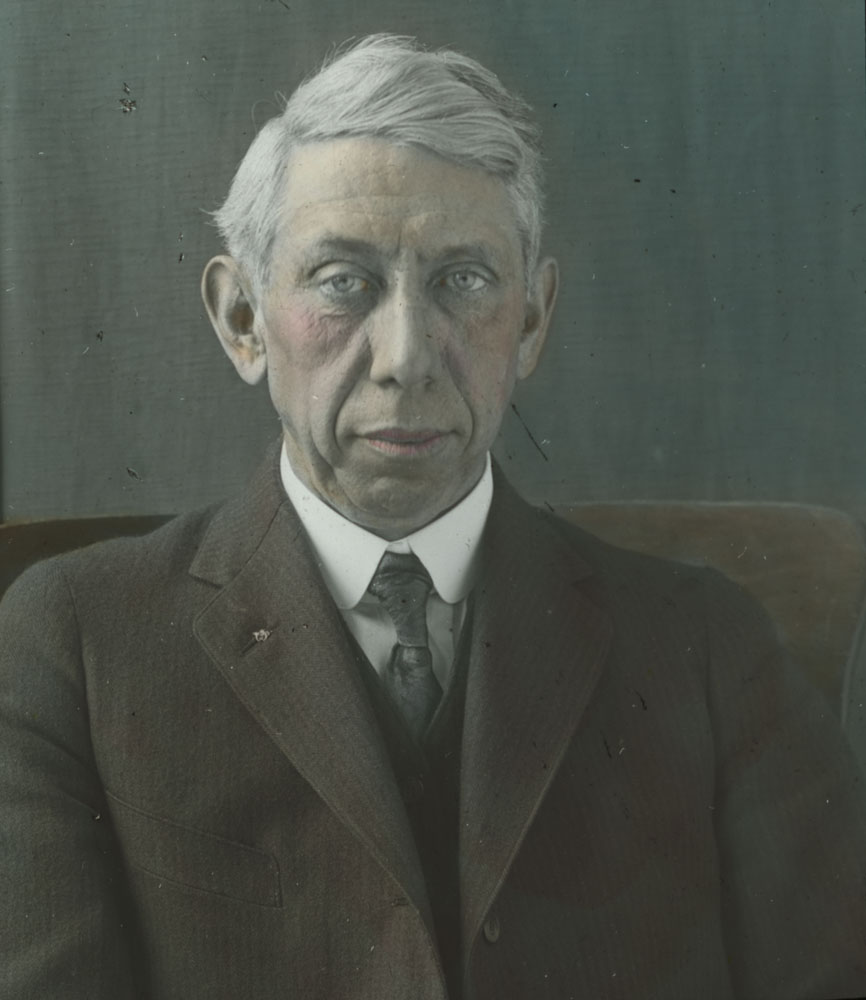Great Nebraska
Naturalists and ScientistsRobert H. Wolcott

, a
Robert H. Wolcott originally joined the Department of Zoology at the University of Nebraska as an assistant in 1894 working under Dr. H. B. Ward. However, Wolcott did not stay long with the Department of Zoology. Only five years after joining the university, he transferred to the Department of Anatomy. In 1909, Wolcott was made acting dean of the University of Nebraska’s College of Medicine while the college was in the process of being relocated from Lincoln to Omaha, Nebraska. Wolcott preferred to say in Lincoln and took the position of junior dean of the College of Medicine before eventually stepping down from his position in 1913 to transfer back to the Department of Zoology which he would later head in 1919.
Wolcott had a reputation for having a great love and passion for natural sciences. His students noted his enthusiasm for wildlife, especially birds and insects. One student stated that Wolcott would stop his car to run into muddy fields to examine abandoned bird nests. During his time as the head of the Department of Zoology, Wolcott became known around campus for keeping a small colony of reptiles in his office. The snakes in the small office colony included rattlesnakes, a milk snake, and a garter snake. All of them came from the Nebraska area and were captured by Wolcott or his son. When asked about his small reptile colony by reporters for the student newspaper, the Daily Nebraskan, Wolcott noted he enjoyed keeping snakes in his office since it made them easier to study and that they kept him company.
His passion for the natural sciences and natural world caused Wolcott to become a major advocate for wildlife conservation. He pushed for the creation of state national parks in Nebraska to help preserve the natural habitats of the local wildlife, as well as add natural attractions for tourists to the state. He spoke at events and clubs about the need to protect Nebraskan birds. At these events, Wolcott noted the diminishing presence shore birds such as sandpipers and long-bill curlew across the state in his lifetime. He blamed loss of habitat and over-hunting for the dwindling numbers of these birds in the state. His interest in birds led Wolcott to form the Lincoln Bird Club with some of his fellow professors at the University of Nebraska, Dr. Lawrence Bruner and Dr. W.D. Hunter. This club, later combined with another ornithology club in Omaha to form the Nebraska Ornithologists’ Union in 1899. Wolcott served as the president of the Nebraska Ornithologists’ Union three times. Bruner and Dr. Myron Harmon Swenk of the University of Nebraska’s Entomology Department worked with Wolcott to co-author A Preliminary Review of the Birds of Nebraska in 1904.
Wolcott found himself involved in the ongoing debate of the period about evolution and religion. He argued for the necessity of allowing people to interpret religion in their own way stating that one’s relation to God is unique to himself. In an interview published in the The Daily Nebraskan, Wolcott explained that science is not a challenge to religion as he believed education should further tolerance in people. He contended that science is just the interpretation or observation of facts to come to educated conclusions. He provided an example of how he does not force his students to believe in evolution, instead he only asks them to study it in order to make “an intelligent decision” on the theory. (“Wolcott Expresses Opinion of Religion,” Daily Nebraskan, 1929, Feb. 21)
Wolcott received a law degree in 1890, a bachelor of science in 1892, and a MD in 1893, all at the University of Michigan, Ann Arbor, Michigan. His death occurred on January 23, 1934. He had spent some days in Lincoln General Hospital earlier in the month.
(Colten Skinner, 2022)